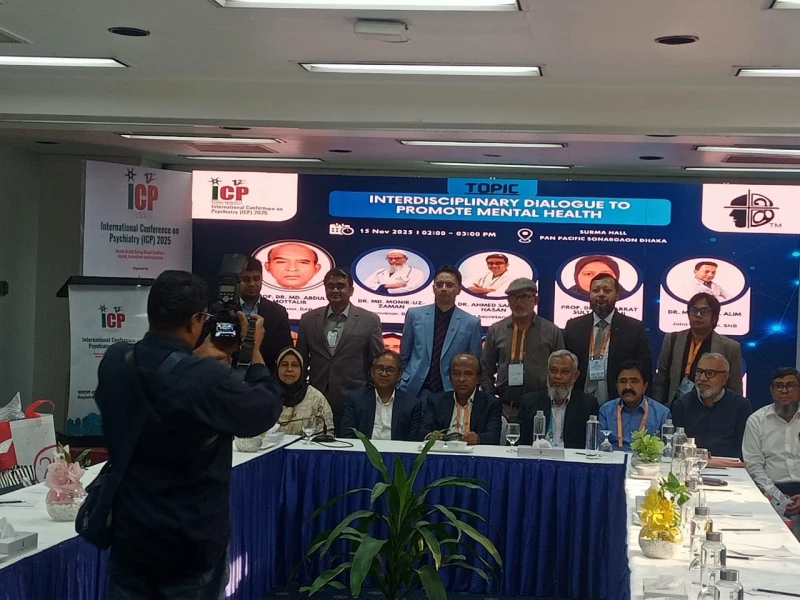Despite strong links between many physical illnesses and mental health conditions, most physicians in Bangladesh still lack the training to integrate both aspects in treatment — an issue many doctors openly acknowledged on Saturday.
Speaking at a seminar titled “Interdisciplinary Dialogue to Promote Mental Health”, organised by the Bangladesh Association of Psychiatrists (BAP) at a city hotel, doctors from various medical departments said the country faces a significant treatment gap because physical and mental health are rarely addressed together.
They noted that a large portion of patients suffer from underlying mental health issues, but most physicians are unable to provide appropriate psychological support.
Prof Dr Mohammad Safiuddin, Convenor of the Bangladesh Cardiac Society, said a growing number of young patients come with panic disorder-induced chest pain that has no cardiac link.
“No matter how much we explain that it’s a psychological issue, these patients repeatedly return to cardiac specialists,” he said.
“Cardiologists were never taught psychiatry. We don’t know how to handle conditions like panic disorder. Some of us study psychology on our own, but that is far from enough.”
Neurologist Dr Md Abdul Alim Nadim, Assistant Professor at the National Institute of Neurosciences & Hospital, said neurology and psychiatry are deeply interconnected but not interchangeable.
“Many patients need both neurological and psychological support, yet they receive only one. As a result, they never fully recover,” he said.
Dr Mohammad Monir Hossain, General Secretary of the Bangladesh Child Neurology Society, said nearly 30 percent of the population is below 18, and many children suffer from neurological issues.
“Bangladesh has only 75 child neurologists. Our collaboration with psychiatrists is also weak. Stronger psychiatry–neurology linkage could transform child mental healthcare,” he noted.
Dr Ahmed Sami-Al-Hasan, General Secretary of Dhaka Medical College Teachers’ Samity, said suicide tendencies are high among medical students, yet counselling facilities have diminished over the years.
“Psychology is still not included in the MBBS curriculum. Every year new doctors graduate lacking basic mental health literacy,” he said.
Women’s mental health received special attention during the dialogue.
Prof Dr Md Abdul Mottalib, Convener of BAP, said many women experiencing mental health problems are still taken to traditional healers instead of psychiatrists.
“The inability of psychiatrists to reach rural areas is a failure of our medical system,” he said.
Dr Musarrat Sultana, Member Secretary of the National Forum of Obstetricians and Gynaecologists of Bangladesh, said adolescent girls receive almost no mental health support.
“Pregnancy significantly impacts mental health, yet women rarely consult psychiatrists. The same happens during menopause — they go to gynaecologists, who are not trained like psychiatrists,” she said, stressing a coordinated care model.
Prof Dr Munir Rashid, Vice-President of the Bangladesh Dermatological Society, said sexual health complaints are rising, and most patients go to dermatologists first.
“But many sexual problems are psychological in origin — lack of satisfaction, marital distress, reluctance to have children. These are primarily psychiatric matters,” he said, adding that counselling alone can resolve many such issues.
Prof Dr Md Nizam Uddin, former head of Psychiatry at Comilla Medical College, urged physicians to avoid “one-size-fits-all” treatment.
“Doctors must identify whether a patient’s problem is physical or psychological. We must step out of conventional silos and adopt interdisciplinary practice,” he stressed.
BAP announced that it will soon arrange interdisciplinary training and workshops involving physicians from all medical departments.


 Prev Post :
Prev Post :
